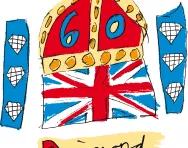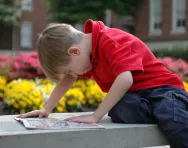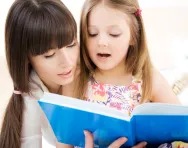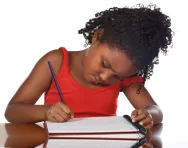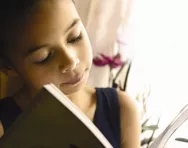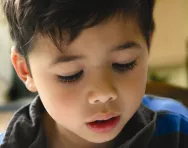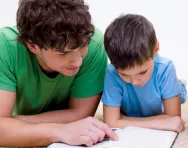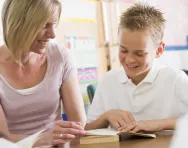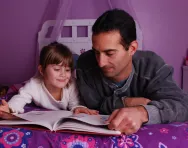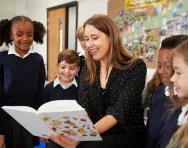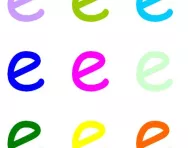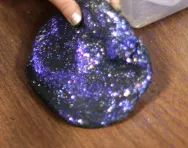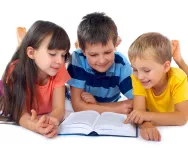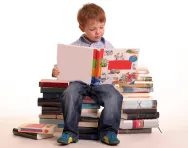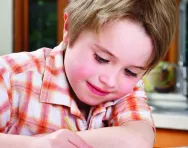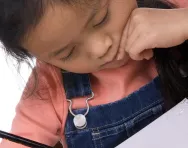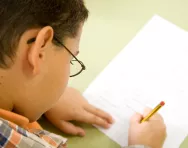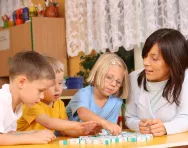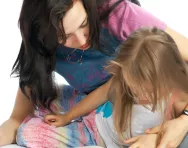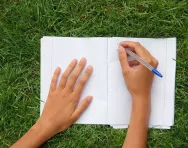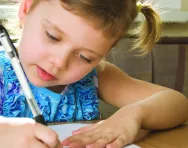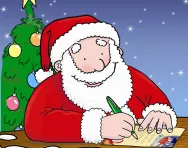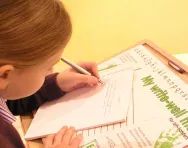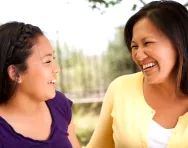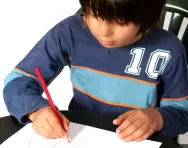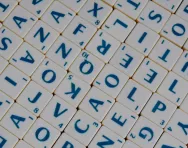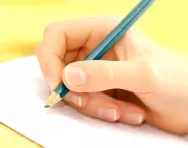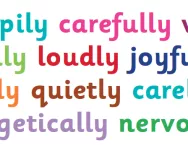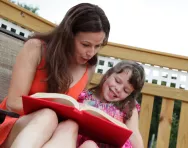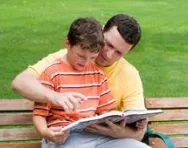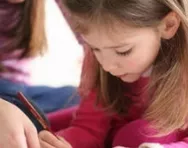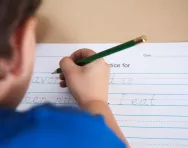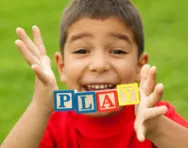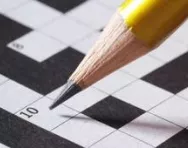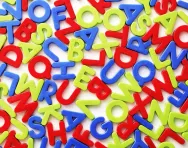Best royal reads for kids
Make sure the whole family feels part of royal festivities and include some celebratory reading in your schedule. We’ve picked some great options for you to read out loud and for independent readers. Time to hang the bunting and snuggle up with a book…
Using comics to improve your child’s literacy
Struggling to get your child to pick up a book? A comic might have more appeal – and some surprising literacy-boosting benefits, especially for boys. Lucy Dimbylow explains why you don’t need to be snobbish about your child’s choice of reading material.
10 ways to boost phonics confidence
How should you support your child’s learning and first reading at home to help them prepare for the Year 1 Phonics Screening Check? Teacher and Y1 parent Phoebe Doyle offers some practical tips and ideas.
Creative writing techniques for kids: a step-by-step guide to writing a story
Encouraging children to write a story of their very own can give them an enormous confidence boost, as well as help them consolidate their literacy learning by putting their phonics, grammar and reading skills into practice. Primary teacher Phoebe Doyle offers parents tips on how to get their children’s creative thoughts flowing.
How to improve your child’s reading skills in KS1
Parents naturally want their child to read to the best of their ability, but often aren’t sure how to help them build on the skills they learn in class. Primary teacher Phoebe Doyle offers some expert tips on what your child needs to know to move to the next reading level.
School reading schemes explained
Ask any parent of a Reception child about Biff, Chip and Kipper, and they'’ll know exactly who you'’re talking about. But just how do primary school reading schemes work, and how can you tell if your child is progressing at the right rate? Primary school reading schemes often use book bands to categorise reading materials. Book bands help determine the appropriate reading level for each child. Lucy Dimbylow puts these questions to the teachers who use reading schemes in the classroom.
Reading comprehension explained for parents
Once your child can read they’ll be working on understanding what they read and really engaging with words in their literacy lessons. Reading comprehension is also a big part of SATs. Teacher Alice Hart explains how you can help boost your child’s skills at home.
Teachers’ top 10 classroom discipline tricks
Does every homework session end in tears and tantrums? Or are you losing sleep over getting your child to learn their spellings? Lucy Dimbylow asked the people who manage 30 children at a time (gulp!) – teachers and teaching assistants – to share their tried and tested tricks.
Reading to learn: how to get the most from reading with your children
Reading with your children at home not only lets them practise new words and sounds, but it can also help to improve their reading comprehension skills. Education writer and primary teacher Phoebe Doyle gives her top tips on helping to enrich reading time to prepare them for KS1 English SATs.
Year 1 phonics screening word check
Our parents' guide to the Year 1 Phonics Screening Check explains what it is, how it is scored and how schools use the results. Find out what you need to know to support your child in our quick Q&A.
6 World Book Day activities for EYFS, KS1 & KS2
Celebrate World Book Day with these fun ideas for children of all ages – get a free book, join a reading group, raise money for charity and more!
No-sew costumes for World Book Day
As the children get excited over book week, it can leave us parents feeling more than a little stressed! Time-poor and not at all sewing-savvy Phoebe Doyle has some simple suggestions for effective World Book Day costumes that won’t break the bank.
What is ‘magic e’ or a split digraph?
The way children learn to spell using phonics and phonetic terminology can cause utter bewilderment to parents trying their best to help at home. Primary teacher Phoebe Doyle is on hand to explain the ‘magic e’, or split digraph.
4 ideas for homemade playdough
Help your child develop the motor skills needed for handwriting with these no-skills-needed ideas and recipes for playdough and similar slimy substances – ideal for sensory play and scientific investigations!
11 things parents need to know about the National Curriculum
It’s the basis for what your child learns every day, but what exactly is the National Curriculum and what does it teach? Education writer and primary teacher Phoebe Doyle offers some clarity.
Book-bored to bookworm: expert tips to get your child reading
Worried that your child always chooses screen time over books? Mum and teacher Phoebe Doyle asks the experts about turning your child into a busy bookworm.
Teachers’ tips to make tricky spellings easy
Does making your child prepare for the weekly spelling test make your heart sink? Forget mindless drilling – primary teacher and preparing-for-spelling-tests veteran Phoebe Doyle has found ways to take some of the stress out of learning tricky words.
How to create a reading-friendly home
Switch off the screens and help make reading a fun, relaxing and engaging pastime for your child by implementing these expert tips from primary school teacher and parent Phoebe Doyle.
KS1 SATs writing assessment success
KS1 SATs are no longer compulsory, but may still be administered by some schools. If so, how will your child's writing be assessed at the end of KS1? We explain what teachers are looking for so you can help your child improve their work and boost their confidence.
What your child learns in Year 2 maths, English and science
Year 2 is when your child may take their Key Stage 1 assessments, but what does that mean? What will they learn? And how can you help? Find out in our parents’ guide.
What your child learns in Year 1 maths, English and science
Be prepared for what your child will learn in Year 1 with our quick reference guide to the key concepts and skills they’ll cover in class – find out how you can help them at home, too!
10 ways to bring books to life for your child
Want to encourage your child to read more, but not sure where to start? We speak to education experts about how you can turn reading from a homework chore into a favourite activity.
8 great handwriting activities
Put the fun into handwriting practice! From everyday shopping lists to rainy day bookmaking, there’s something to inspire children of all ages and interests to pick up a pencil, says teacher and mum-of-two Phoebe Doyle.
Phonics and sounds explained
Wondering what those noises that your child has been chanting to you are? They're probably practising their phonics sounds – we explain what the sounds of phonics are, and how you can help your child learn them in Reception and beyond.
Handwriting dos and don’ts
Practising handwriting at home doesn’t have to be about copying out rows of letters and reaching writing targets. Make writing fun with these helpful tips from primary school teacher Phoebe Doyle.
Handwriting practice: writing to Santa
It’s the handwriting activity your child will be clamouring to start: writing to Father Christmas! Gather your child’s paper and pencils and settle down to compile the list, then organise a response from the big man himself, as well as a personalised Christmas message.
Handwriting: how your child learns to write
Ever wondered how your child really learns to write? Phoebe Doyle gets expert advice on the best ways to promote good handwriting techniques with your child.
5 free ways to boost your child's communication skills
Reading and writing are vital to your child’s education, but developing their oral language skills will also boost their confidence with words and expand their vocabulary. Make a difference to their literacy success from today!
9 fun writing projects to boost literacy skills
Stories aren’t just for reading – teachers regularly use a story as a starting point to engage children in many writing activities that cover a wide range of objectives. Here, education writer Phoebe Doyle gives you a few suggestions for doing the same at home.
5 unusual ways to help with spelling
Help your children improve their spelling skills with games and activities that build word-savviness in fun and interesting ways.
All about dysgraphia
Could your child’s difficulty with writing be dysgraphia? Find out what the signs are, and what to do about it.
What are adverbs?
Use our quick guide to adverbs to help your child understand this descriptive part of speech.
Your phonics questions answered
Do you understand how your child is learning to read? We asked the experts to demystify phonics teaching and give you some practical tips to support your child’s learning. You'll also find links to phonics worksheets, games and activities.
5 ways to boost your early reader's confidence
Your early reader may be steaming ahead but you can give them an extra boost with a few easy strategies, says Jackie Cosh. Start today!
Develop your child's literacy skills in the early years
Supporting kids’ literacy skills at home is a key factor in helping them to become accomplished readers with broad vocabularies. Get started today!
Helping your child learn to write
More often than not, parents provide children with their first writing experiences. Here’s how to encourage good handwriting habits from the beginning of primary school.
Writing practice: how to help your struggling child
Is your child’s handwriting a cause for concern? Help them to improve it with these simple activities.
3 steps to success in reading, writing and arithmetic
The 3Rs may not conjure up happy memories for you, but bestselling author and educational expert, Bernadette Tynan, explains how you can make sure they do for your child.
Expert spelling tips for KS1 and KS2
Tutor and author of the best-selling Spelling Made Magic, Clare Winstanley, shares her practical tips and clever tricks to make spelling practice fun for KS1 and KS2 children.
9 spelling strategies from real parents
Helping your child master spelling starts in Reception and continues throughout the primary years. Lucy Dimbylow asked real parents for their top tips on making learning spellings fun.
